
The M-Factor
¥151.53
The definitive guide to turning the Millennials' great expectations into even greater results The Millennial generation (those born between 1982 and 2000) has rapidly entered the workforce in greater numbers, but its introduction to the workplace has been anything but seamless. In fact, many companies already report attention-grabbing stories about: the mother who called HR to complain when her Millennial daughter got a mediocre performance review; the new hire who dialed the CEO directly to tell him what the company could be doing better; the young employee who revealed a confidential new product on her Facebook page before it was made public. Clashes like these are happening in workplaces around the world, and they leave leaders and coworkers scratching their heads and wondering, "What do these Millennials wantWhy are they so differentHow do we get the good ones in the doorHow do we keep them there without alienating the other generations?" Going forward, a company's success will depend upon knowing the answers to these questions, because they are the keys to motivating this new generation and to taking advantage of the amazing potential it possesses. In The M-Factor, Baby Boomer Lynne Lancaster and Generation Xer David Stillman draw on cutting-edge case studies, findings from large-scale surveys, and hundreds of interviews to identify the seven trends essential for understanding and managing the Millennials: the role of the parents, entitlement, the search for meaning, great expectations, the need for speed, social networking, and collaboration. Observant, humorous, and savvy, this book the ultimate guide to Millennials in the workplace offers valuable insights and practical, take-action tips and solutions that Traditionalists, Boomers, Gen Xers, and even Millennials can use to bridge generational gaps, be more productive, and achieve organizational success like never before.

Often Wrong, Never in Doubt
¥138.19
It's not a question. It is a philosophy to live by. It's Donny Deutsch's motto. And it is the secret possessed by every person with the right stuff the one-in-a-hundred who gets to the top of their team, their company, their business, their industry.If there is an assignment or a promotion up for grabs, a client or account looking for new answers, do you know how to go for itDonny Deutsch built a billion-dollar media business asking himself the basic question, "Why Not Me?" Once the reader asks and answers that question, a world of opportunity opens up. It is a tool to motivate people, build a business, and create a business culture.Often Wrong, Never in Doubt is an inspirational book from one of America's most colorful and exciting entrepreneurs. It's Donny's story. In a fun conversation with the reader, Donny lays out the core principles that propelled him to create tremendous wealth, build a huge and influential business, and become a national personality. Using inside stories of the media, the advertising industry, and a youth spent growing up on the streets of New York, Donny gives the commonsense bottom line that he has learned along the way, broken down into real, relevant, and inspiring lessons that will be useful to everyone from the front-line salesperson to the middle manager to the successful corporate executive. (It's also a useful guide for dating.)
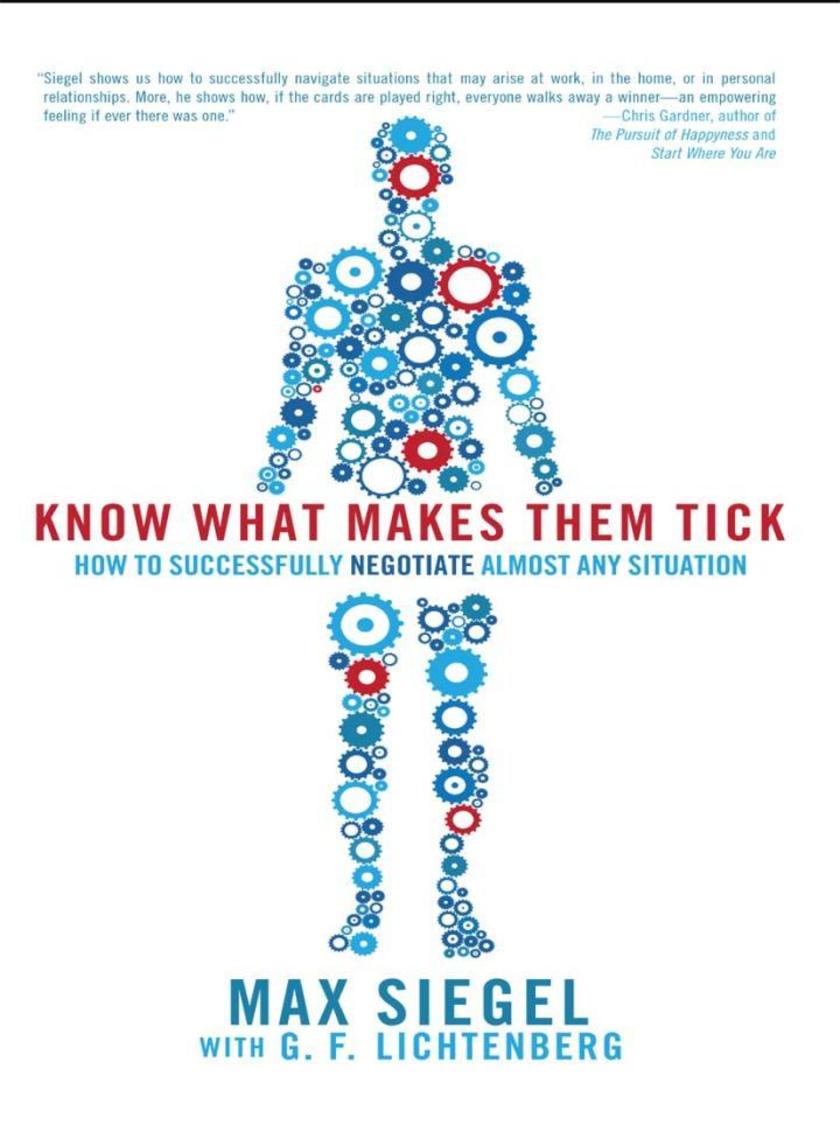
Know What Makes Them Tick
¥84.16
Max Siegel started with none of the obvious advantages, yet again and again he built mutually beneficial partnerships with peers, mentors, supervisors, and industry leaders that took him to the heights of professional and personal achievement. He's managed some of the world's top recording artists, ballplayers, and race-car drivers, and helped run some of the top organizations in sports and entertainment. He's grown fragmented niche markets into bestselling audiences by tapping into the universal hopes and passions that bring people together. Now he travels the country giving motivational speeches and inspiring professionals of all kinds, sharing his method for connecting with people, whatever their differences.The secret, Siegel says, is to know what makes others tick. For some, it's financial security; for others, it's respect, devotion to family, a creative calling, or a vision of a better world. He shows how to encourage people to share these hidden, all-important motivations, and how to partner with them in the most powerful way there is: by finding the overlap between their goals and yours, so that together you can realize the dreams that make you tick.The nine universal rules outlined in Know What Makes Them Tick include:See Where You Want to Be, Not Where You AreFind Your AmbassadorsShow What's in It for ThemReaders will learn practical strategies for negotiating the challenges in every part of life, whether motivating colleagues to be more productive, finding a market for their product, uniting a divided family, or building a life of satisfaction in an unpredictable world. It's an eye-opening guide to a unique and powerful approach that anyone can use.
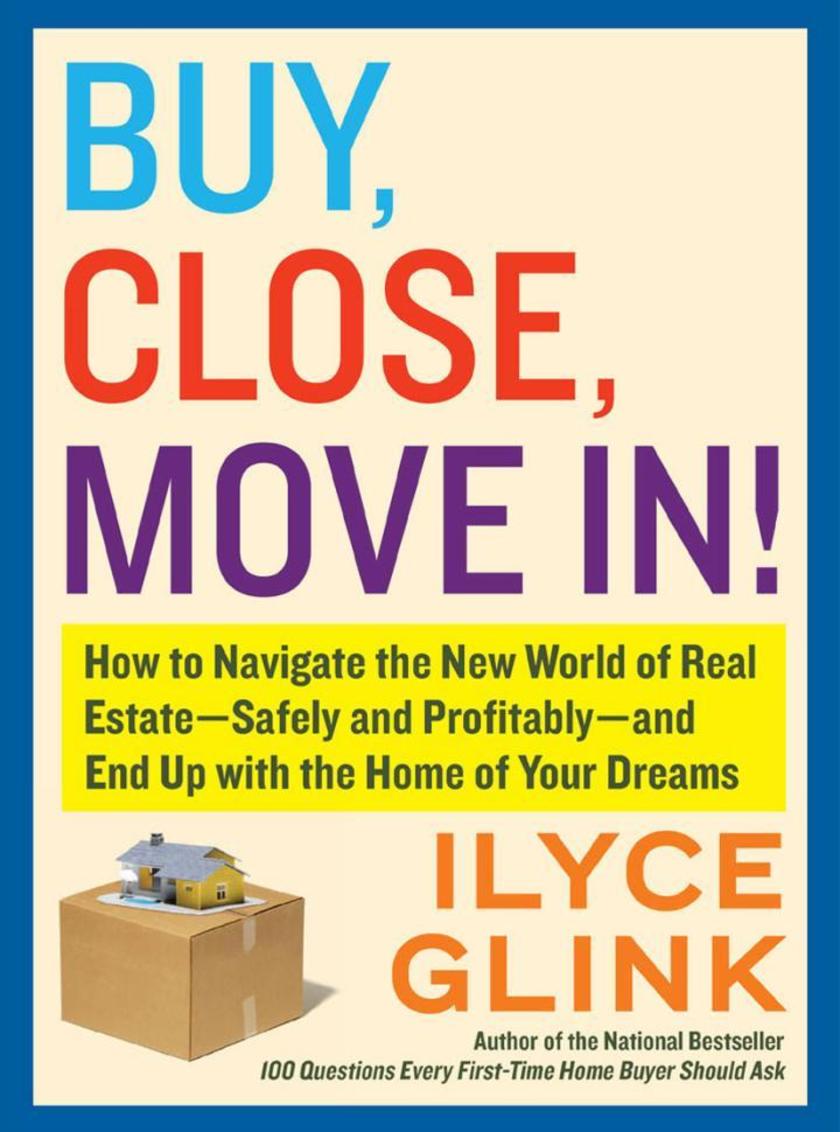
Buy, Close, Move In!
¥84.16
The rules have changed, but your dreams haven't. You can buy the home you want let award-winning real estate guru Ilyce Glink show you how! With her books, syndicated newspaper and Internet columns, radio show, blog, Web site, and numerous media appearances, Ilyce Glink has become the go-to expert Americans rely on to help them successfully navigate the tricky world of real estate a marketplace made even more complex today thanks to the Great Recession. Sure, there's a maze of new regulations. Sure, it's harder than ever to find a great deal or get the best loan. But you can do it. All it takes is a little expert advice from Ilyce. Clear and concise, Buy, Close, Move In! cuts through confusing red tape to provide the essential inside information you need to make the best decisions, and answers commonly asked questions about every step of the process, including: Credit from raising your score to identitifying theft protection Real estate investments trends and opportunities Foreclosures, short sales, and auctions Appraisals, closing costs, and other fees Mortgages fixed rate versus adjustable rate and other financing options With Ilyce Glink's Buy, Close, Move In! you're one step closer to home.
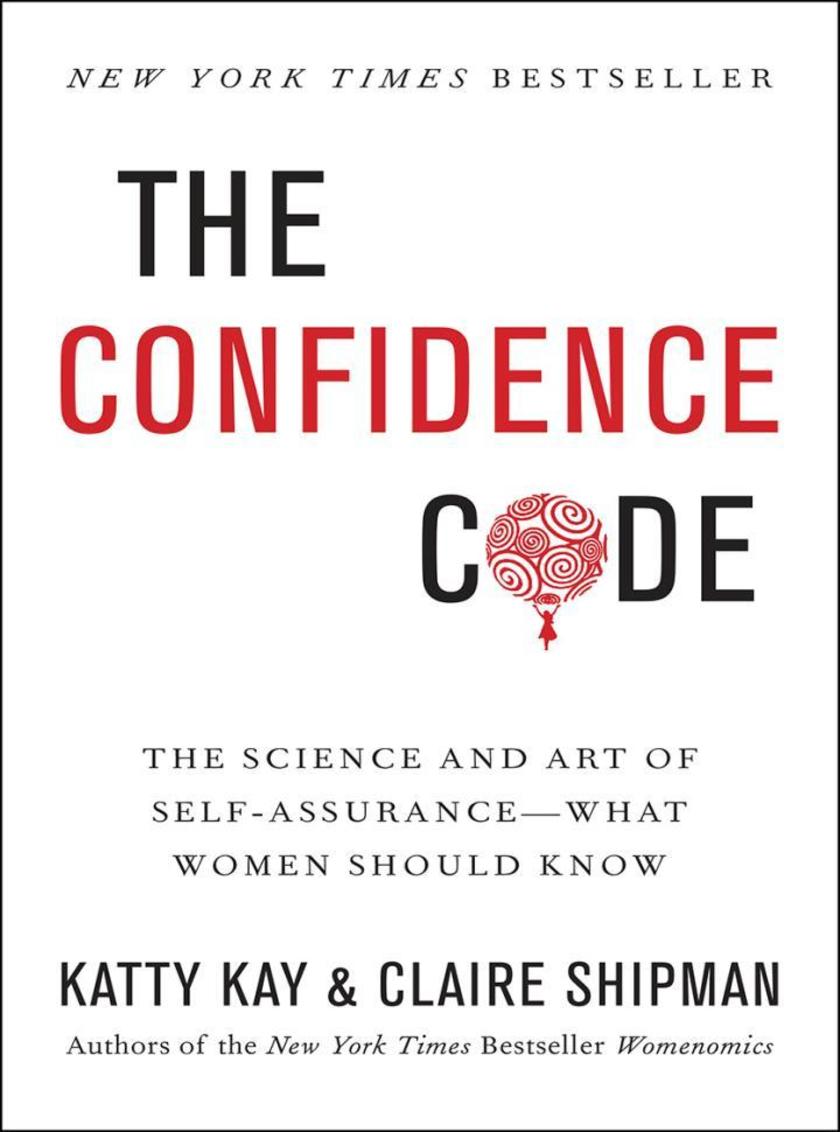
The Confidence Code
¥99.65
Confidence. We want it. We need it. But it can be maddeningly enigmatic and out of reach. The authors of the New York Times bestseller Womenomics deconstruct this essential, elusive, and misunderstood quality and offer a blueprint for bringing more of it into our lives.Is confidence hardwired into the DNA of a lucky few or can anyone learn itIs it best expressed by bravado, or is there another way to show confidenceWhich is more important: confidence or competenceWhy do so many women, even the most successful, struggle with feelings of self-doubtIs there a secret to channeling our inner confidenceIn The Confidence Code, journalists Katty Kay and Claire Shipman travel to the frontiers of neuroscience on a hunt for the confidence gene and reveal surprising new research on its roots in our brains. They visit the world's leading psychologists who explain how we can all chose to become more confident simply by taking action and courting risk, and how those actions change our physical wiring. They interview women leaders from the worlds of politics, sports, the military, and the arts to learn how they have tapped into this elemental resource. They examine how a lack of confidence impacts our leadership, success, and fulfillment.Ultimately, they argue, while confidence is partly influenced by genetics, it is not a fixed psychological state. That's the good news. You won't discover it by thinking positive thoughts or by telling yourself (or your children) that you are perfect as you are. You also won't find it by simply squaring your shoulders and faking it. But it does require a choice: less people pleasing and perfectionism and more action, risk taking, and fast failure.Inspiring, insightful, and persuasive, The Confidence Code shows that by acting on our best instincts and by daring to be authentic, women can feel the transformative power of a life on confidence.
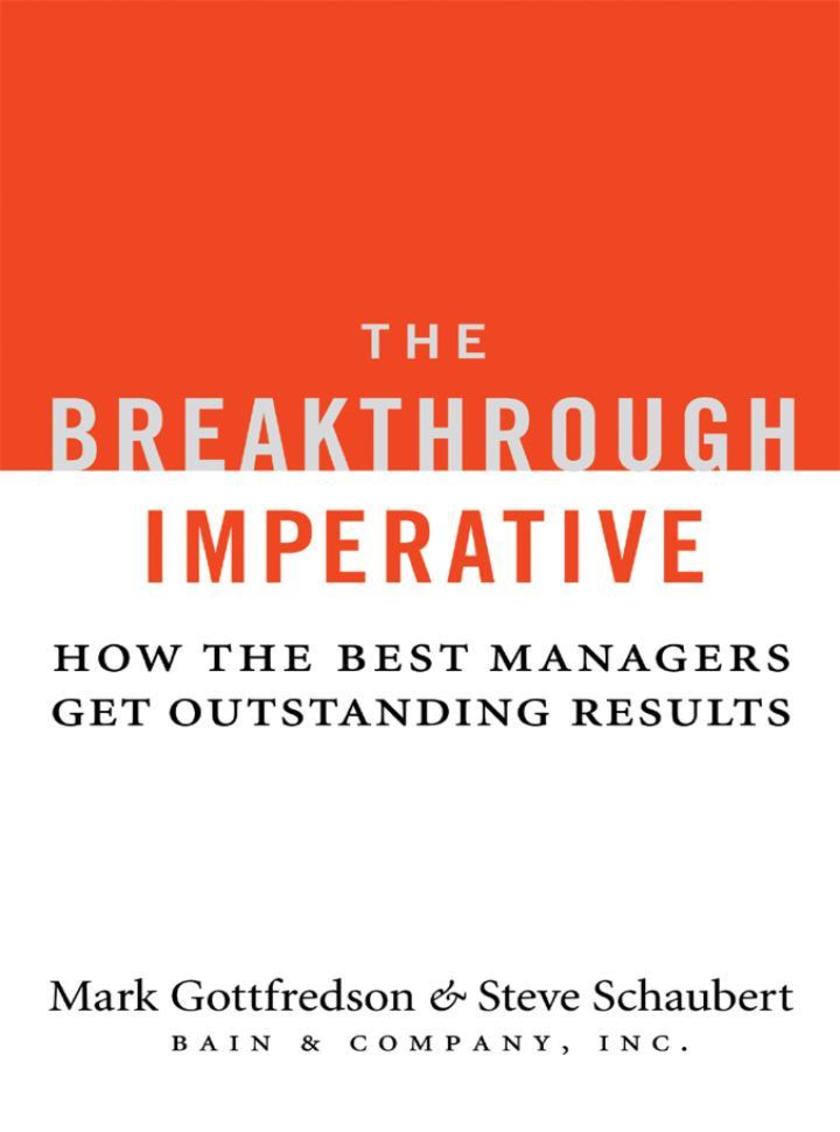
The Breakthrough Imperative
¥149.26
Every general manager today all the way up to the CEO is expected by his or her stakeholders to achieve new breakthroughs in performance and fast. Those who don't make visible progress toward that goal within the first year or two will likely find themselves looking for another job. It is precisely because of this growing breakthrough imperative that managers today, whether in corporations or nonprofits, need to get off to a fast start. They don't have time for mistakes or for going back and redoing what they should have done right in the first place. But, despite the intensity of these pressures, despite the high expectations and short time frames, a number of CEOs and general managers turn in truly exceptional results. How do they meet and exceed the breakthrough imperativeTo answer this question, consultants and former managers Mark Gottfredson and Steve Schaubert interviewed more than forty CEOs from both industry and the nonprofit sector, conducted an intensive study of what successful managers do right and what some do wrong and drew on their own combined fifty-plus years of experience at Bain & Company, where their insights have consistently been found in the pages of the Harvard Business Review. Together they came up with the four straightforward principles deceptively simple yet remarkably powerful that everyone must follow to succeed at achieving breakthrough results: 1. Costs and prices always decline2. Competitive position determines options3. Customers and profit pools don't stand still4. Simplicity gets results Although seemingly simplistic, mastering these four laws means mastering the basics of great management a foundation on which to build the rest of one's management strategy. Whether you're managing a small work group or a multinational corporation, a single division or an entire nonprofit, The Breakthrough Imperative presents these core laws of business to help you determine where you are, just how far you can go, and how to get there with stellar results.
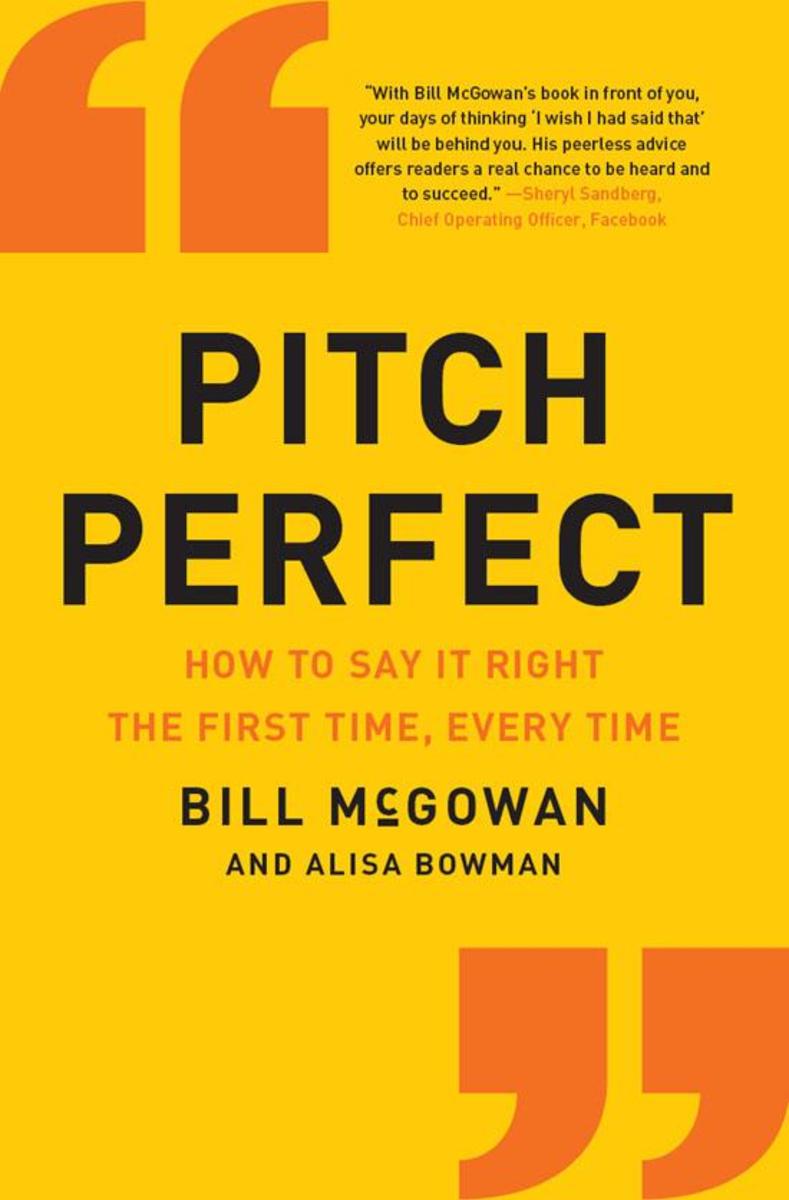
Pitch Perfect
¥155.02
The media coach and Emmy Award-winning correspondent Bill McGowan shares his secrets of pitch-perfect communications, showing readers how to communicate with confidence.During the pivotal moments of our lives, results are often determined not only by our actions but by our words as well. Saying the right thing the right way can make the difference between sealing the deal or losing the account, advancing your career or suffering a demotion. During these moments, it's important to be pitch perfect to use precisely the right tone to convey the right message to the right person at the right time. Such pitch-perfect moments are crucial in our personal and professional journeys. In Pitch Perfect, the renowned media coach Bill McGowan shows you how to craft just the right message. Along the way, McGowan lays out his Seven Principles of Persuasion, including: The Scorsese Principle: Hold your audience's attention with visual images. Direct the film that plays in your listener's mind. The No-Tailgating Principle: Avoid verbal fender-benders and career-wrecking moments by maintaining a safe talking distance. When in doubt, stop talking and listen. The Pasta-Sauce Principle: Cure boredom by boiling down your message, making it as rich and brief as possible. In Pitch Perfect, you'll learn how to overcome all these communication pitfalls. The Seven Principles of Persuasion are as easy to learn, implement, and master as they are effective. The right language both verbal and nonverbal can make you more confident, persuasive, and certain. It can stir people to listen closely to your every word and to remember you long after you've left the room.

Leadership BS
¥168.37
Too many leadership failures. Too many career derailments. Too many toxic workplaces filled with disengaged, distrustful employees. Jeffrey Pfeffer, a professor at the Stanford Graduate School of Business and the author of Power, offers an incisive dissection of the multibillion-dollar leadership industry and presents ways to fix its many problems.In Leadership BS, Jeffrey Pfeffer pulls back the curtain, showing how leadership really works and why so many leadership development efforts fail. In this forthright and persuasive critique, Pfeffer argues that much of the oft-repeated wisdom about leadership is based more on hope than reality, on wishes rather than data, on beliefs instead of science. In an age when transparency is considered a virtue, Pfeffer makes the case that strategic misrepresentation isn't as harmful as you think, that breached agreements are a part of business, that immodesty is frequently a path to success, and that relying on the magnanimity of your boss is a bad bet.Using research findings from social psychology, sociology, and sociobiology, and filled with practical, actionable advice, Leadership BS encourages readers to finally stop accepting sugar-laced but toxic potions as cures and to understand the realities of organizations and human behavior.To make real change, Pfeffer argues, we need to get beyond the half-truths and self-serving stories that are so prominent in the mythology of leadership. In calling BS on so much conventional wisdom, Leadership BS offers both a provocative, scientific examination of how leadership actually works and how it doesn't and a pre*ion for leaders future and present.
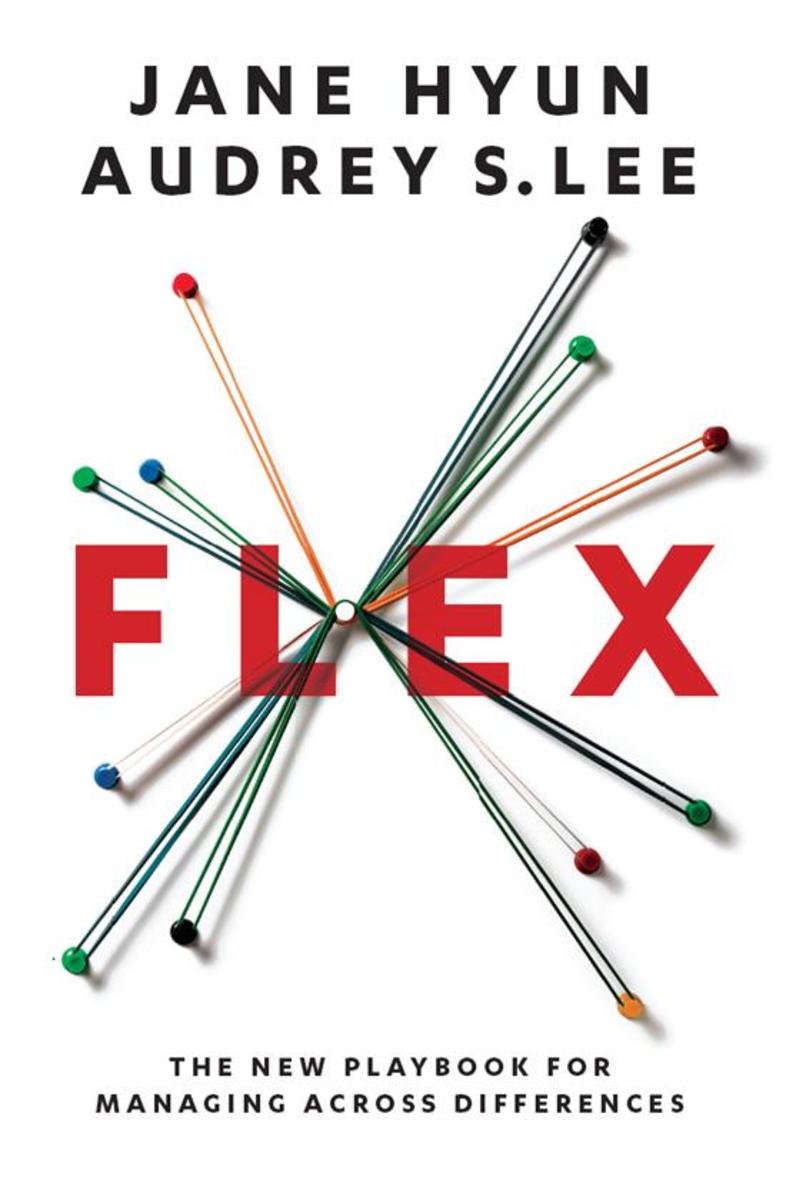
Flex
¥155.02
The workplace around the world is changing growing increasingly multicultural, female, and younger. Experts often tell CEOs and managers what not to do, and corporate diversity programs can often appear to be like defensive measures against lawsuits and harassment charges. While technology has connected all of us as a global workforce, it has not equipped us with the capability to interact genuinely with people. In order to be successful in this new global business environment, we need to rethink the way we lead others.Flex offers a new approach a proactive strategy for managers to understand and leverage difference effectively in this new global economy.Flex shows managers how to understand the power gap the social distance between you and those in the workplace of different cultures, ages, and gender; stretch your management style and bridge the gap with more effective communication and feedback tools; and multiply the effect by teaching these skills to others and closing the power gap with clients, customers, and partners to create innovative solutions. Creating flex in a company's management style will affect all aspects of developing existing leaders, attracting future talent, and building relationships with customers in this competitive marketplace. Flex shows you how.
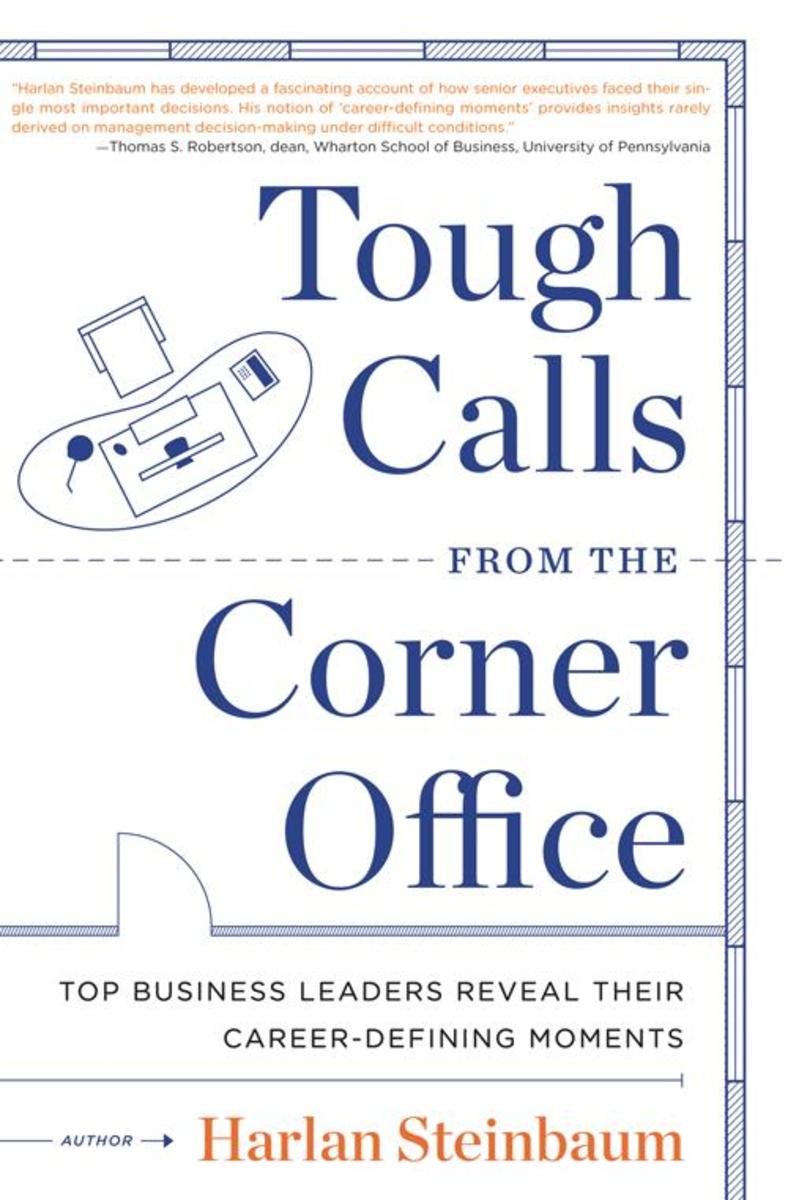
Tough Calls from the Corner Office
¥145.91
Thirty-nine of America's most successful business leaders share the most important decisions of their careers and the life and career lessons they hold for us all. When former CEO Harlan Steinbaum decided to buy back his retail drug chain with his partners, his life changed dramatically. The personal impact that this one business decision this "tough call" had on Steinbaum made him wonder if others had experienced similar kinds of defining moments in their own careers. To find out, he reached out to some of the most successful people in the country leaders from companies such as Verizon, Chrysler, ESPN, Ogilvy & Mather, Enterprise Rent-A-Car, WellPoint, and Panera Bread Company to pinpoint the career-defining decisions that were integral to their success. The result is Tough Calls from the Corner Office, a treasure trove of rich business wisdom, stories of tough decisions and hard-won victories, and lessons from a lifetime of achievement in the world of business.Tough Calls from the Corner Office offers inspiring stories, lessons, principles, strategies, ideas, and solutions drawn from every stage in a successful career, from early key choices to the final leave-taking from the world of work. Given unprecedented access to such visionaries as Union Square Hospitality Group's Danny Meyer, ESPN's Bill Rasmussen, Build-A-Bear's Maxine Clark, and Let's Make a Deal's Monty Hall, Steinbaum shares their experiences, told in their own words, so that others may learn from them. In a time when many people are at professional crossroads, Tough Calls from the Corner Office offers inspiration and the confidence to believe that tough decisions can be the first step to extraordinary success.
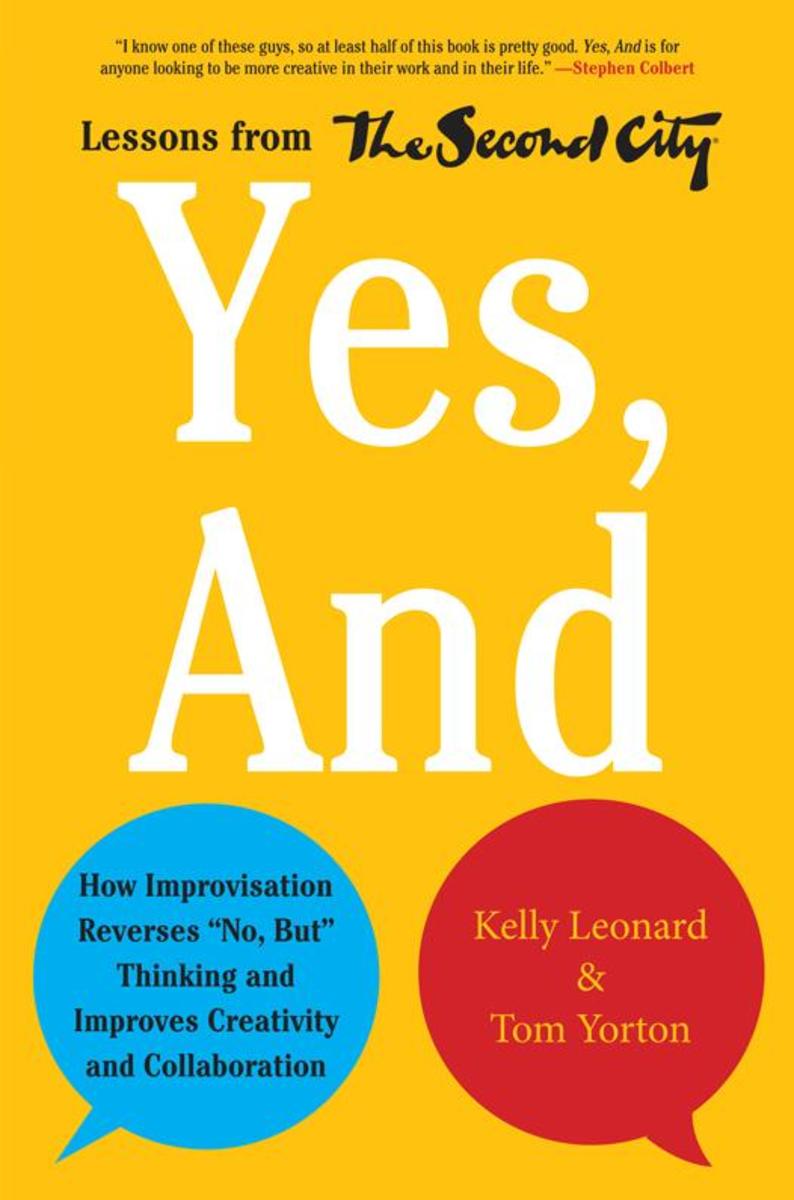
Yes, And
¥162.76
The Second City has launched the careers of celebrated comic performers such as Tina Fey and Stephen Colbert and produced award-winning content. But it's the actual improvisational process developed and honed over the years by The Second City that has become its legacy. Players master an ability to co-create in ensembles, using philosophies that celebrate a "Yes, And" approach. They embrace authenticity and failure, and espouse the idea of "following the follower," which allows any member of the team to assume a leadership role. For more than two decades, The Second City has taken these same principles in thousands of corporate clients, showing leaders how to apply the tools of improv to common business challenges. Here, for the first time, Second City executives Kelly Leonard and Tom Yorton describe how you can use the same skills that thrill audiences around the world to improve your emotional intelligence, increase creativity, and learn to pivot out of tight and uncomfortable situations. In this engaging, often humorous, and highly practical book, you will learn how to become a more compelling leader and a more collaborative follower by employing the seven elements of improv: Yes, And, by which you give every idea a chance to be acted on; Ensemble, reconciling the needs of individuals with those of the broader team; Co-creation, which highlights the importance of dialogue in creating new products, processes, and relationships; Authenticity, or being unafraid to speak truth to power, challenge convention, and break the rules; Failure, teaching us that not only is it okay to fail, but we should always include it as part of our process; Follow the Follower, which gives any member of the group the chance to assume a leadership role; Listening, in which you learn to stay in the moment, and know the difference between listening to understand and listening merely to respond. When we are fiercely following the tenets of improvisation, we generate ideas both quickly and efficiently, we weather storms with more aplomb, and we don't work burdened by a fear of failure. Even better, these qualities are fully transferable to our lives outside the office. More people are beginning to recognize what The Second City has known for a long time: In the midst of a revolution in how we learn, communicate, and work, professional success often rests on the same pillars that form the foundation of great comedy: Creativity, Communication, and Collaboration. That's where improvisation comes in.
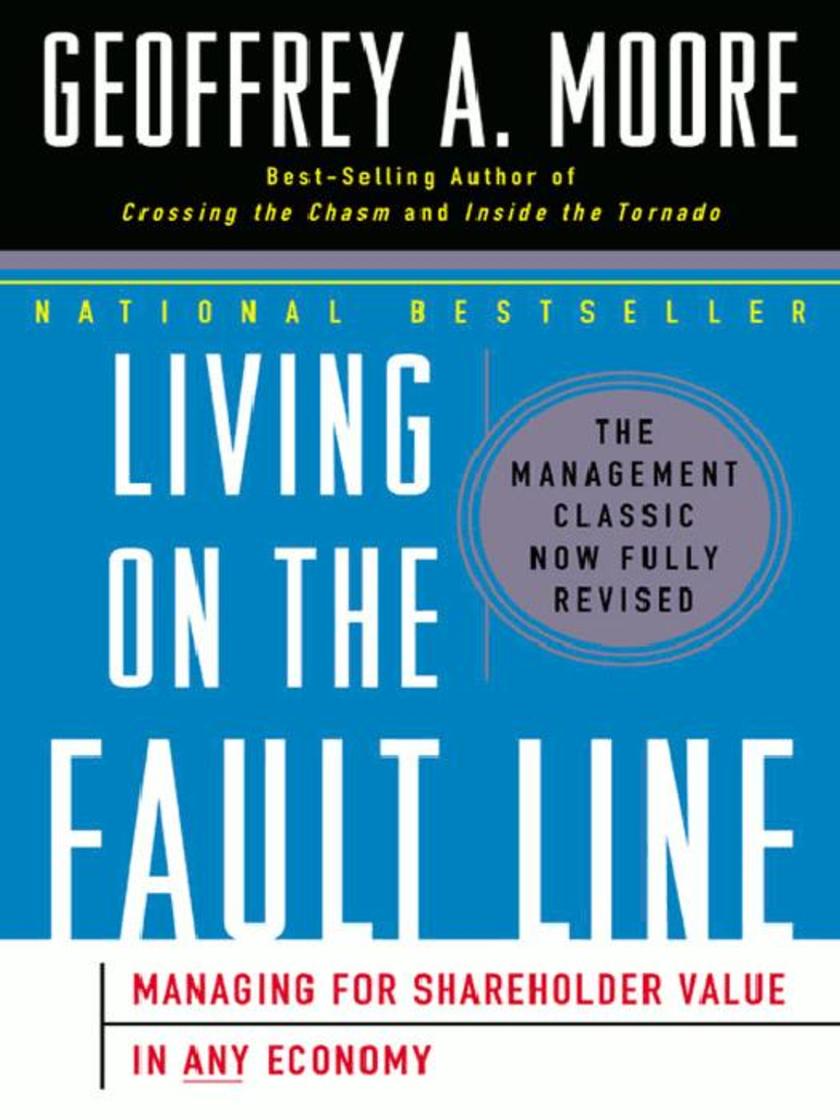
Living on the Fault Line
¥152.92
The fault line -- that dangerous, unstable seam in the economy where powerful innovations and savage competition meet and create market-shattering tremors. Every company lives on it; no manager can control it. In the original edition of Living on the Fault Line, Geoffrey Moore presented a compelling argument for using shareholder value (or share price) as the key driver in management decisions. Moore now revisits his argument in the post-Internet bubble world, proving that the methods he espouses are more germane than ever and showing companies how to use them to survive and thrive in today's demanding economy. Extending the themes of Crossing the Chasm and Inside the Tornado, his first two books on the dynamics of the high-tech markets, Moore shows why sensitivity to stock price is the single most important lever for managing in the future, both as a leading indicator of shifts in competitive advantage and as an employee motivator for making necessary changes in organizations heretofore impervious to change. This revised and updated edition includes: A deeper emphasis on core versus context, which has emerged as the key distinction in allocating resources to improve shareholder value A new Competitive Advantage Grid that will aid managers in achieving and sustaining competitive advantage, the most important component in managing for shareholder value An expanded Value Discipline Model as it relates to the Competitive Advantage Grid Analysis of the powerful new trend toward core/context analysis and outsourcing production duties Updated models of organizational change for each stage of market development As disruptive forces continue to buffet the marketplace and rattle the staid practices of the past, Moore offers a brilliant set of navigational tools to help meet today's most compelling management challenges.
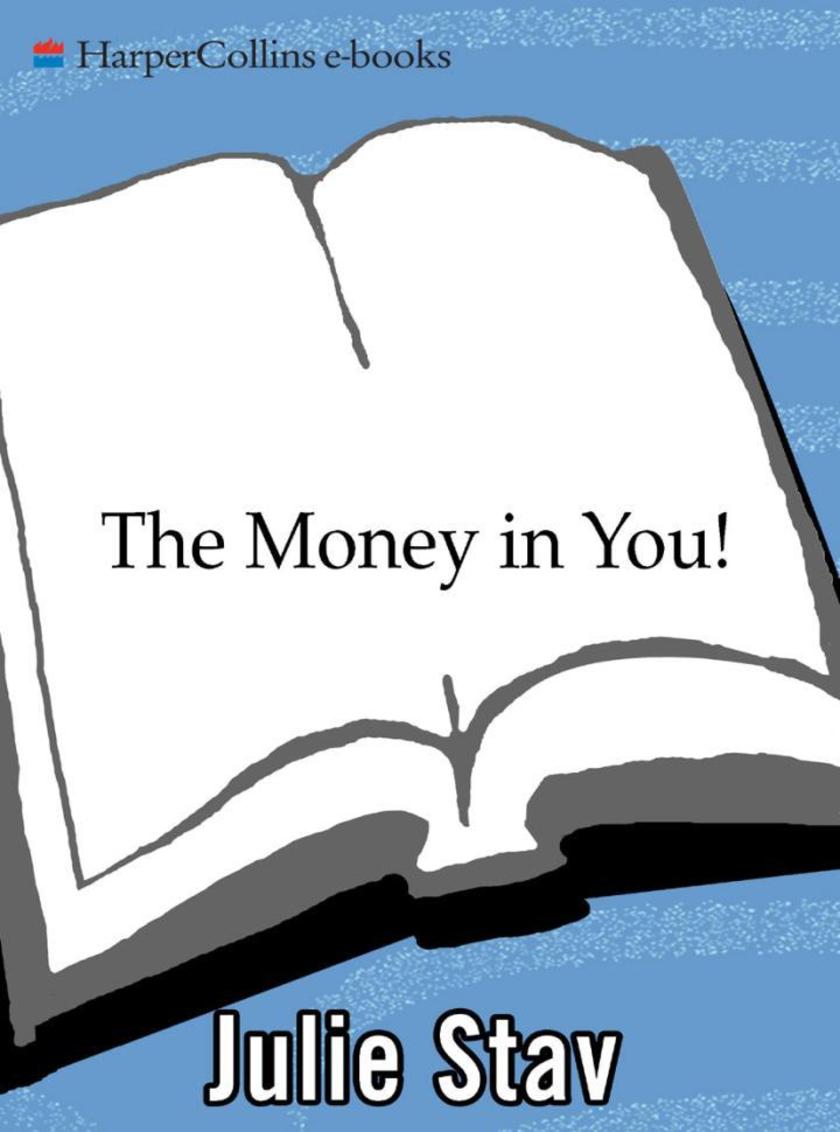
The Money in You!
¥72.70
From New York Times bestselling financial guru Julie Stav comes The Money in You!, a spot-on primer that pinpoints your financial personality, thus helping you to overcome the self-imposed hurdles that keep you from living the rich life of your dreams. Socrates' guiding rule was "Know thyself." These words are of eternal significance, and, arguably, no better advice has ever been given to man or woman. Yet, what would Socrates have said if he had to dispense practical financial advice in today's hyper-spending, debt-saturated climateWith the myriad pressures involved in building wealth, instilling practical spending habits in ourselves and our kids, and ultimately establishing a life in which money is abundant and our fiscal future secure, undoubtedly he would tell us, "Know thy financial self." In The Money In You!, Julie Stav introduces us to five different financial personality types. According to Julie, it is our financial nature—the way we handle money matters—that forecasts our financial future. Julie shows readers that no amount of data or market expertise trumps the fundamental truth we all forget—that building wealth, attaining security, and establishing personal success can only be achieved when we recognize our strengths and weaknesses. If we are in touch with our motivations, our desires, and our innate tendencies, we can shed the guilt of making the same mistakes over and over; we can halt the vicious cycle of overspending, debt, and ruined relationships. It is then that we are able to restructure our lives to fit our individual goals, whether it's learning to play the stock market or just saving for shoes. Finally, Julie shows us how to establish healthy relationships with the people who are affected by our financial decisions, and who affect us with theirs. Endlessly entertaining, this book will initiate feisty discussions over just who we are and how we interact with others. Julie Stav will both delight and inform.
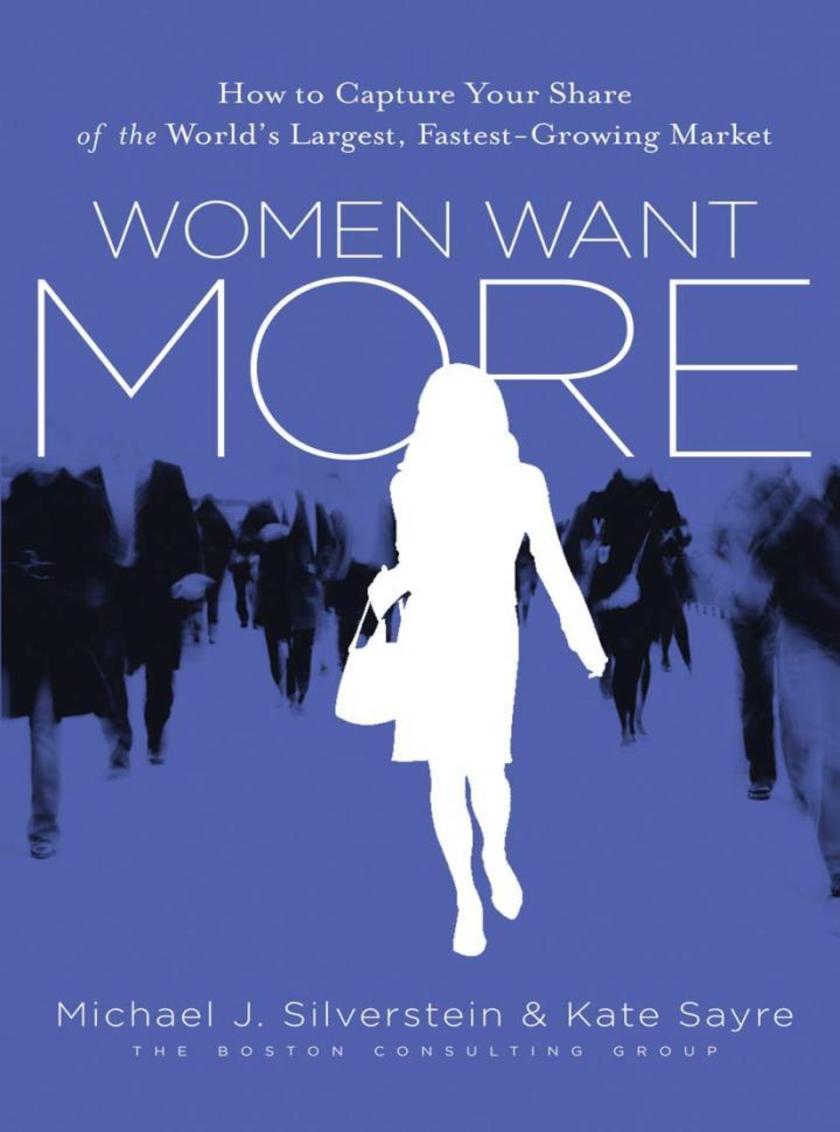
Women Want More
¥157.15
Haven't women gotten everything they wantEconomic powerSocial influenceBusiness cloutYes, but it turns out that these fantastic gains have come at a heavy price, as consumer goods experts Michael J. Silverstein and Kate Sayre discovered in an unprecedented study of 12,000 women in forty countries.That relentless upward climb has left women feeling stressed out, time starved, and overburdened. As a result, they look to products and services that will help them claw back time, juggle multiple roles, and capture a few moments of enjoyment.Women want more much more, in every category of goods and services. And no matter what their age or economic situation or where they live in the world, women will spend trillions of dollars over the next decade on the brands that truly deliver: Home-cleaning products that enable women to do in an hour what used to take a day Financial-services products that recognize that women control half the United States' wealth Food products that help keep the whole family happy and healthy Health care services designed for working-women's hectic schedules In the coming years, women's influence will be so enormous that it will not only help bring us out of the economic downturn but also create one of the most dramatic market opportunities of our lifetime bigger than the rise of China and India; more sustainable than any bailout package.Through quantitative data, profiles of individual women, and stories of winning companies, Women Want More provides business leaders with the understanding and practices they need to capture their share of the rising "female economy."
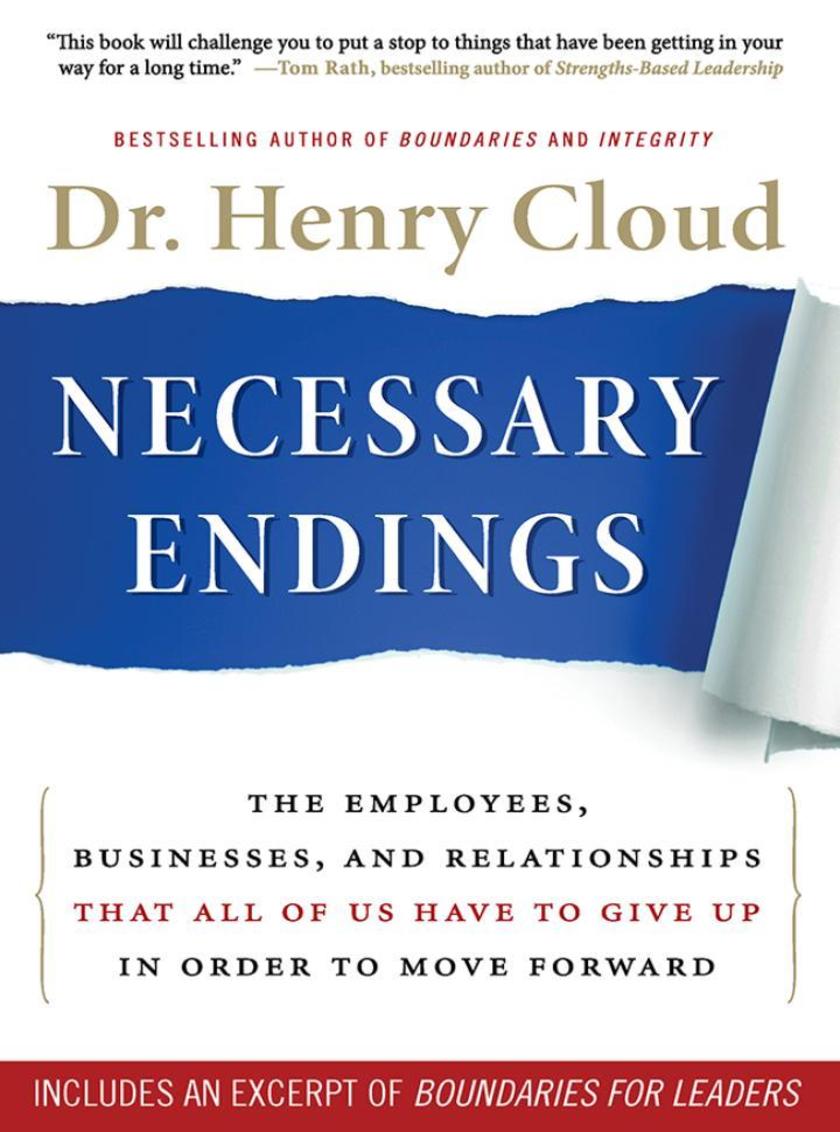
Necessary Endings
¥155.02
End Pain.Foster Personal and Professional Growth.Live Better. While endings are a natural part of business and life, we often experience them with a sense of hesitation, sadness, resignation, or regret. But consultant, psychologist, and bestselling author Dr. Henry Cloud sees endings differently. He argues that our personal and professional lives can only improve to the degree that we can see endings as a necessary and strategic step to something better. If we cannot see endings in a positive light and execute them well, he asserts, the "better" will never come either in business growth or our personal lives.In this insightful and deeply empathetic book, Dr. Cloud demonstrates that, when executed well, "necessary endings" allow us to proactively correct the bad and the broken in our lives in order to make room for the professional and personal growth we seek. However, when endings are avoided or handled poorly as is too often the case good opportunities may be lost, and misery repeated. Drawing on years of experience as an executive coach and a psychologist, Dr. Cloud offers a mixture of advice and case studies to help readers know when to have realistic hope and when to execute a necessary ending in a business, or with an individual; identify which employees, projects, activities, and relationships are worth nurturing and which are not; overcome people's resistance to change and create change that works; create urgency and an action plan for what's important; stop wasting resources needed for the things that really matter. Knowing when and how to let go when something, or someone, isn't working a personal relationship, a job, or a business venture is essential for happiness and success. Necessary Endings gives readers the tools they need to say good-bye and move on.
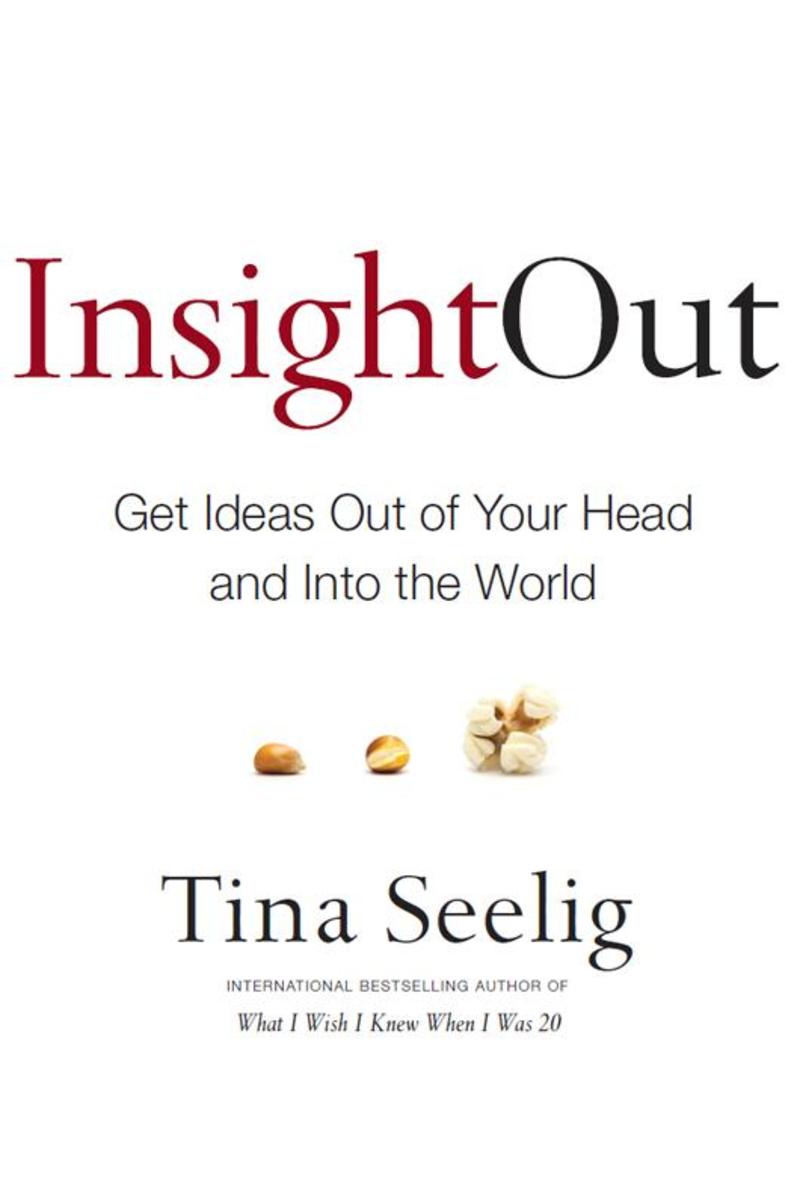
Insight Out
¥95.11
What if there were a clear set of instructions to help you bring your best ideas to lifeAs with a recipe, you could take a compelling idea and with concrete steps, transform it into something extraordinary. As a professor at Stanford University, Tina Seelig has dedicated her career to teaching the practice of moving from imagination to implementation. In Insight Out, she welcomes you into her classroom and crisply defines the core concepts of imagination, creativity, innovation, and entrepreneurship, presenting an elegant and much-needed model she calls the "Invention Cycle." This new approach enables you to see obstacles as opportunities, inspire others to share your vision, and ultimately bring more ideas to fruition. Filled with surprising research, examples from her Stanford classroom, and stories from around the world—Silicon Valley to San Quentin State Prison, rural Pakistan to the North Pole—Insight Out offers essential and unexpected strategies that will help bring even the slightest flicker of an idea to life. Equally useful for students, educators, entrepreneurs, and would-be innovators in all fields, this is an essential road map for anyone who wants to get ideas out of their head and into the world.

The Chasm Companion
¥141.57
In The Chasm Companion, The Chasm Group's Paul Wiefels presents readers with a new analysis of the ideas introduced in bestselling author Geoffrey Moore's classic books, Crossing the Chasm and Inside the Tornado, and focuses on how to translate these ideas into actionable strategy and implementation programs. This step-by-step fieldbook is organized around three major concepts: how high-tech markets develop, creating market development strategy, and executing go-to-market programs based on the strategy.
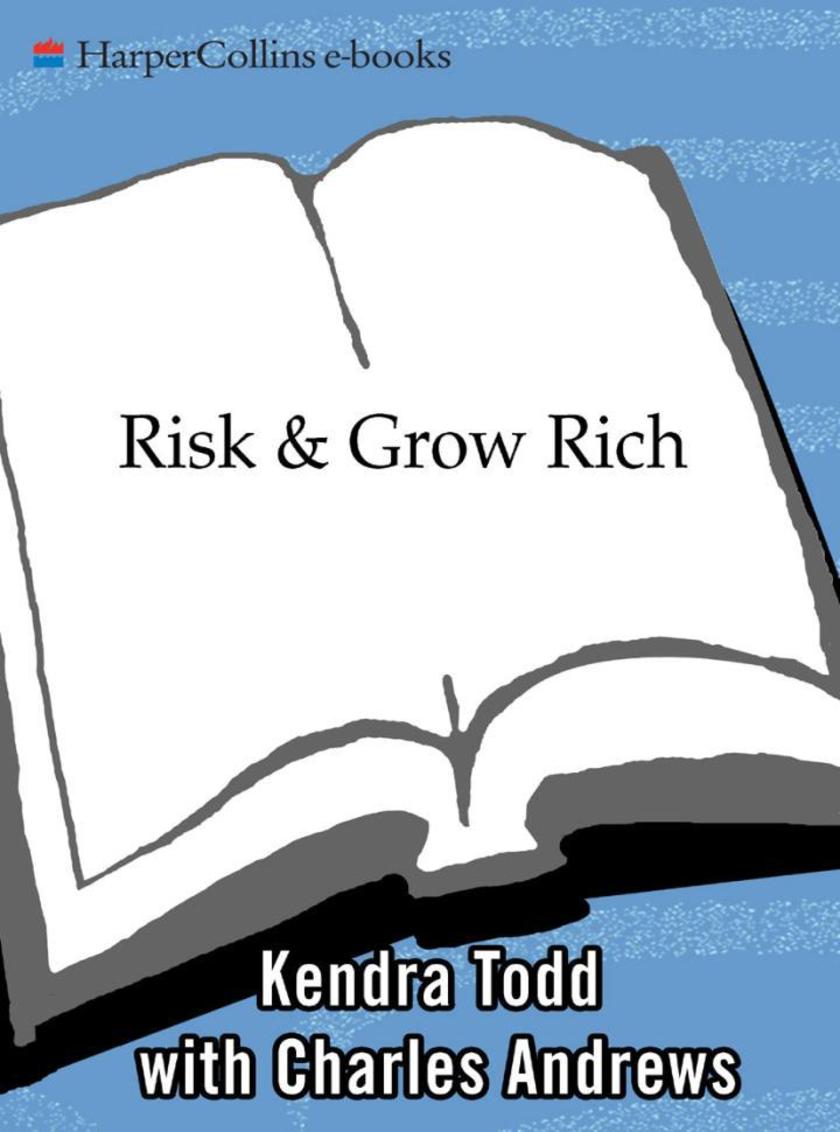
Risk & Grow Rich
¥140.08
With her skill in selling real estate, her expertise in marketing, and her drive to succeed, Kendra Todd has mapped out an exciting and lucrative future for herself one that included taking the right kind of risks, profiting from them, and sharing her knowledge with others. Todd understands that the one thing that keeps people from making the big, bold moves that can improve their lives is a fear of risk, even more than lack of capital. The willingness to try new and different things, and the ability to keep your head on straight while your heart is pounding, is something that Todd knows well. Without risk, she doesn't have a business. Todd will address how men and women view risk from opposite sides of the galaxy, how anyone can become an entrepreneur, how you can set yourself up for success and what the ten steps are for turning risk into opportunity. With quizzes to test what kind of risk taker you are, and examples of successful risks that paid off, Todd is poised to become the hot voice of investment to her generation.
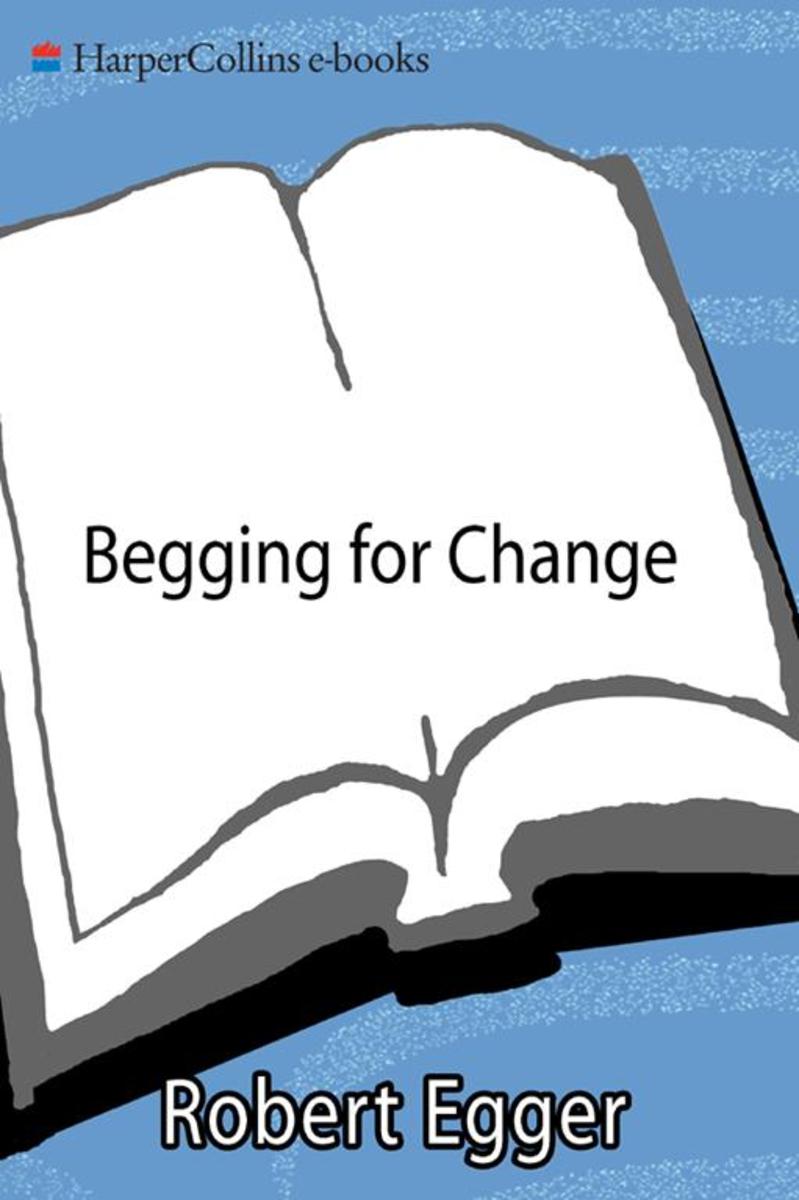
Begging for Change
¥141.80
You are a good person. You are one of the 84 million Americans who volunteer with a charity. You are part of a national donor pool that contributes nearly $200 billion to good causes every year. But you wonder: Why don't your efforts seem to make a differenceFifteen years ago, Robert Egger asked himself this same question as he reluctantly climbed aboard a food service truck for a night of volunteering to help serve meals to the homeless. He wondered why there were still people waiting in line for soup in this day and age. Where were the drug counselors, the job trainers, and the support team to help these men and women get off the streetsWhy were volunteers buying supplies from grocery stores when restaurants were throwing away unused fresh food every nightWhy had politicians, citizens, and local businesses allowed charity to become an end in itselfWhy wasn't there an efficient way to solve the problemRobert knew there had to be a better way. In 1989, he started the D.C. Central Kitchen by collecting unused food from local restaurants, caterers, and hotels and bringing it back to a central location where hot, nutritious meals were prepared and distributed to agencies around the city. Since then, the D.C. Central Kitchen has been named one of President Bush Sr.'s Thousand Points of Light and has become one of the most respected and emulated nonprofit agencies in the world, producing and distributing more than 4,000 meals a day. Its highly successful 12-week job-training program equips former homeless transients and drug addicts with culinary and life skills to gain employment in the restaurant business. In Begging for Change, Robert Egger looks back on his experience and exposes the startling lack of logic, waste, and ineffectiveness he has encountered during his years in the nonprofit sector, and calls for reform of this $800 billion industry from the inside out. In his entertaining and inimitable way, he weaves stories from his days in music, when he encountered legends such as Sarah Vaughan, Mel Torme, and Iggy Pop, together with stories from his experiences in the hunger movement -- and recently as volunteer interim director to help clean up the beleaguered United Way National Capital Area. He asks for nonprofits to be more innovative and results-driven, for corporate and nonprofit leaders to be more focused and responsible, and for citizens who contribute their time and money to be smarter and more demanding of nonprofits and what they provide in return. Robert's appeal to common sense will resonate with readers who are tired of hearing the same nonprofit fund-raising appeals and pity-based messages. Instead of asking the "who" and "what" of giving, he leads the way in asking the "how" and "why" in order to move beyond our 19th-century concept of charity, and usher in a 21st-century model of change and reform for nonprofits. Enlightening and provocative, engaging and moving, this book is essential reading for nonprofit managers, corporate leaders, and, most of all, any citizen who has ever cared enough to give of themselves to a worthy cause.
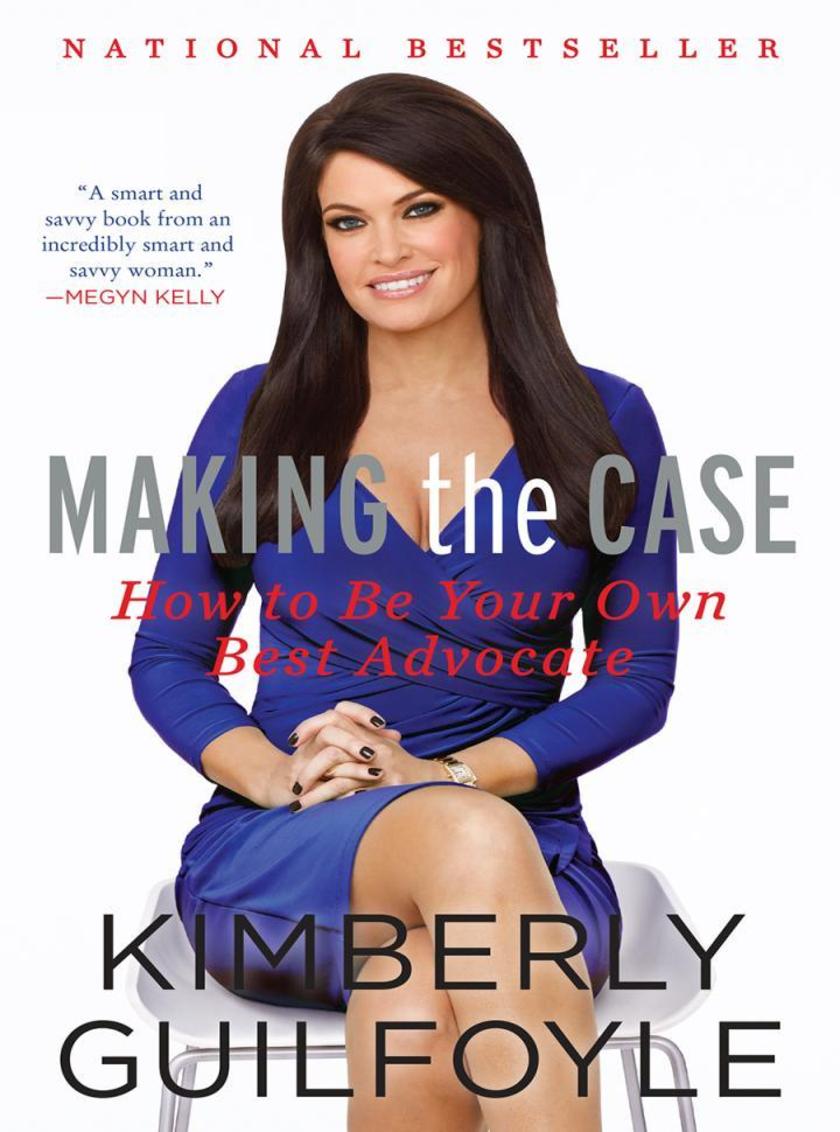
Making the Case
¥88.56
After an eleven-year-old Kimberly Guilfoyle lost her mother to leukemia, her dad wanted her to become as resilient and self-empowered as she could be. He wisely taught her to build a solid case for the things she wanted. Creating a strong logical argument was the best way to ensure she could always meet her needs. That childhood lesson led her to become the fearless advocate and quick-thinking spitfire she is today. In Making the Case, Guilfoyle interweaves stories and anecdotes from her life and career with practical advice that can help you win arguments, get what you want, help others along the way, and come out ahead in any situation.Learning how to state your case effectively is not just important for lawyers it's something every person should know how to do, no matter what stage of life they are in. From landing her dream job right out of school, switching careers seamlessly midstream, and managing personal finances for greater growth and stability to divorcing amicably and teaching her young child to advocate for himself, Guilfoyle has been there and done it. Now she shares those stories, showing you how to organize your thoughts and plans, have meaningful discussions with the people around you, and achieve your goals in all aspects of your life. You'll also learn the tips and strategies that make the best advocates so successful, some of which come directly from courtroom scenarios where the stakes are highest.Told in her winning and humorous voice, Guilfoyle's experiences and the wisdom drawn from them are a ready guide to help you reach your potential and live a fulfilling and happy life at work and at home.

The Peter Principle
¥88.56
The classic #1 New York Times bestseller that answers the age-old questionWhy is incompetence so maddeningly rampant and so vexingly triumphantThe Peter Principle, the eponymous law Dr. Laurence J. Peter coined, explains that everyone in a hierarchy from the office intern to the CEO, from the low-level civil servant to a nation's president will inevitably rise to his or her level of incompetence. Dr. Peter explains why incompetence is at the root of everything we endeavor to do why schools bestow ignorance, why governments condone anarchy, why courts dispense injustice, why prosperity causes unhappiness, and why utopian plans never generate utopias.With the wit of Mark Twain, the psychological acuity of Sigmund Freud, and the theoretical impact of Isaac Newton, Dr. Laurence J. Peter and Raymond Hull's The Peter Principle brilliantly explains how incompetence and its accompanying symptoms, syndromes, and remedies define the world and the work we do in it.




 购物车
购物车 个人中心
个人中心



